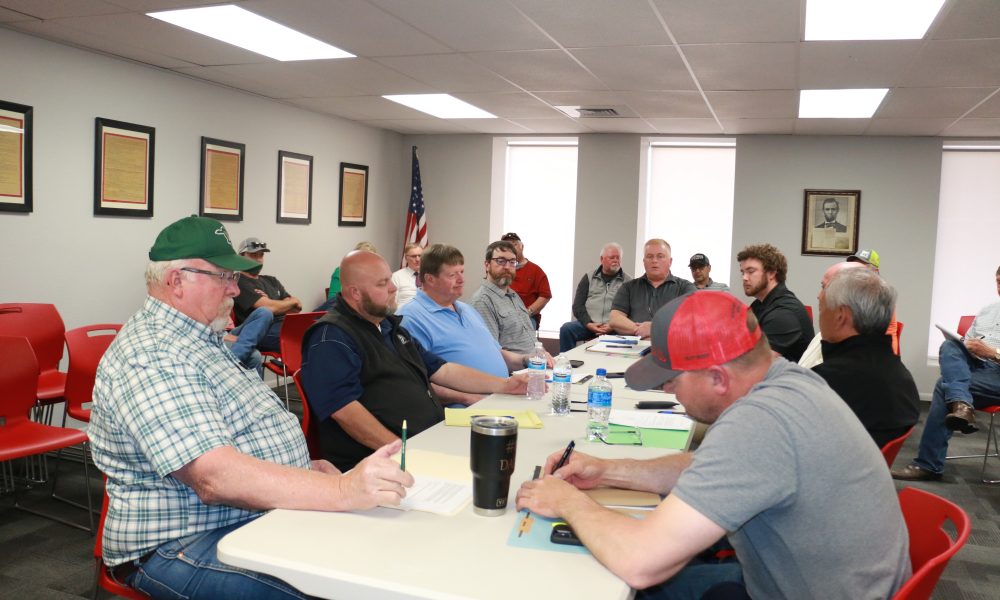Greg Smith’s pay would more than double for managing the Nyssa reload project while dropping his duties as Malheur County economic development director under a plan presented to county officials last week.
Smith is currently paid $6,000 a month by Malheur County to lead the Treasure Valley Reload Center. That would jump to $15,000 a month under the latest plan to retain him, proposed with no explanation for the increase.
The proposal emerged in a rapid series of events last week regarding the troubled rail project and Smith’s duty to the county, and is likely to continue the controversy over his work in Malheur County.
County officials through June had been negotiating to renew Smith’s annual contract. He has been paid through his company, Gregory Smith & Company, to run the Malheur County Economic Development Department, at a cost of $9,000 a month, and manage the reload center project for the additional $6,000 a month.
READ IT: Original contract and Additional services contract
But Smith surprised county commissioners with a letter he delivered Tuesday, June 28, that said he was done.
He said his company was “no longer interested in continuing to provide services” to the county because of what he described as an “incredibly toxic” environment.
“If we give him $15,000, that is what
we have been giving him to do two jobs.”
Don Hodge, Malheur County commissioner
Caught off guard, county officials said on Wednesday, June 29, that they now expected to extend his contract for up to two months to allow for the change.
But two days after he quit, Smith apparently considered staying on for another year – working only on the rail project.
That plan was revealed in a letter to county officials from the Malheur County Development Corp., the public company set up by the county commissioners to oversee the Treasure Valley Reload Center. In its letter on Thursday, June 30, the company said that Smith was “critical to the continued development, progress and ultimate completion of TVRC.”
The company said it wanted the Malheur County Court to strike a new deal for Smith’s work on the reload center and pay the “appropriate funding” at $15,000 a month for that work alone. The company wants the county to pay that cost.
READ IT: Development corporation letter
Such an arrangement indicates that the region’s onion industry executives want the public to pay for Smith’s continued work on a shipping center whose primary financial benefit would be to cut costs for their companies.
Project officials have cast the Treasure Valley Reload Center as benefitting the county economy, but the onion industry has said it wouldn’t ship any more onions than it does now. Onion producers who will use the Nyssa center have not indicated whether they would add employees as a result of the public’s investment in the Nyssa project, now projected to cost $35 million. Industry leaders recently have complained that the reload building center was designed to do more than handle onions, a view in contrast to representations for years from project leaders that the reload center would benefit the region’s entire agricultural sector.
Smith has been the project manager for the Treasure Valley Reload Center since 2017. The center was originally scheduled to open in 2020 and more recently was set to be finished last month. Now, the project will end up only partially finished this fall, still needing an estimated $6 million to complete construction and open for business.
Smith has juggled duties for Malheur County with a full-time job in Boardman, service as a state legislator, and contract services to other public agencies. In Malheur County, he has staffed an Ontario office with one employee who also has handled economic development tasks.
Engineers, attorneys and other professionals have been retained at public expense to handle key tasks on the reload center.
Whether Smith’s role would change under the proposed arrangement couldn’t be established because those involved kept silent last week.
Smith didn’t respond to written questions. He has a practice of not providing interviews or responding to questions from the Enterprise.

None of the five directors on the board the Malheur County Development Corp. responded to questions about their proposal, including when they agreed to pursue it and how they set the compensation level.
Board members may have decided without a public meeting to seek Smith’s services and the county’s agreement.
Brian DiFonzo, an Ontario attorney representing the development company, wrote the June 30 letter outlining the proposed Smith deal. He said he was writing “on behalf of the board of directors” and that he was writing to “convey the request of the board to retain the engagement of the services of Gregory Smith and Company.” He also described the proposal as “the position of the board.”
But no such proposal was considered during the board’s last public session, held Tuesday, June 28, and there has been no notice of a public meeting since. Oregon law requires public boards to vote only during open sessions. Public records show that the Malheur County Development Corp. board in the past has resorted to voting by private email on public business.
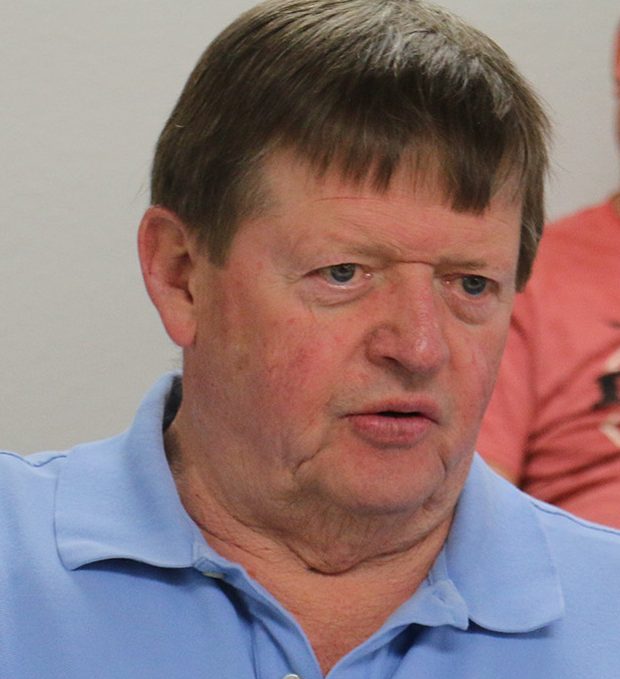
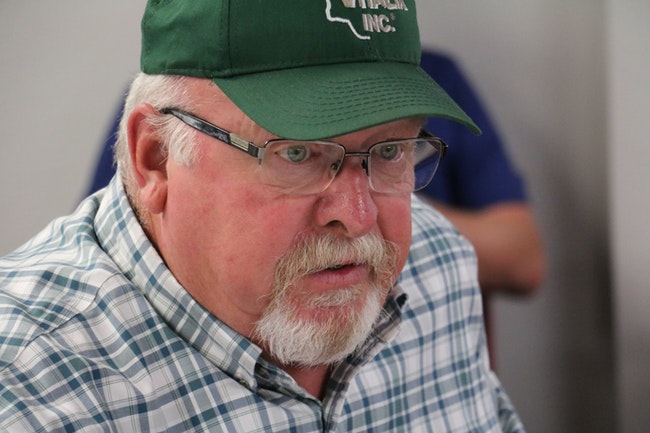
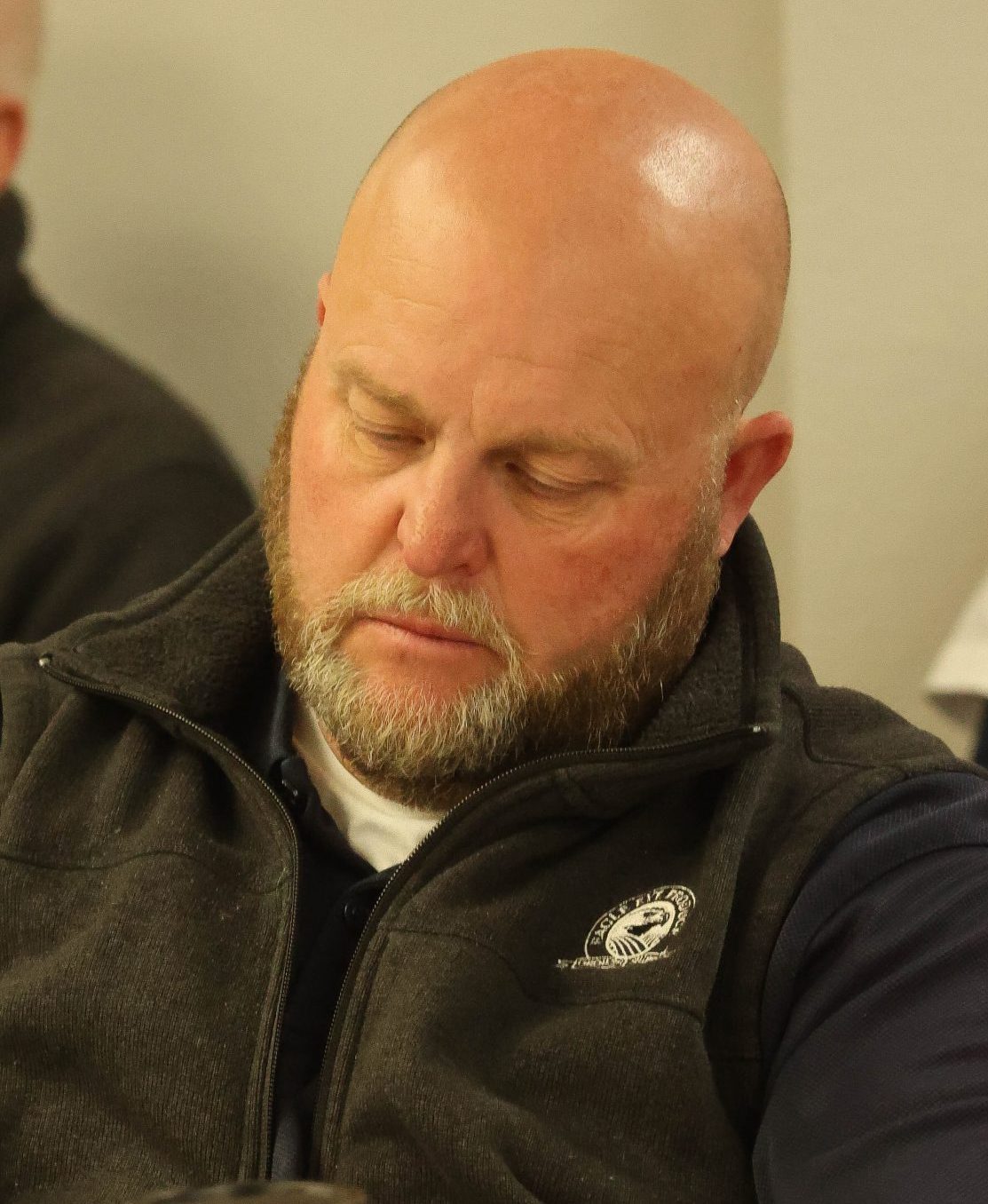
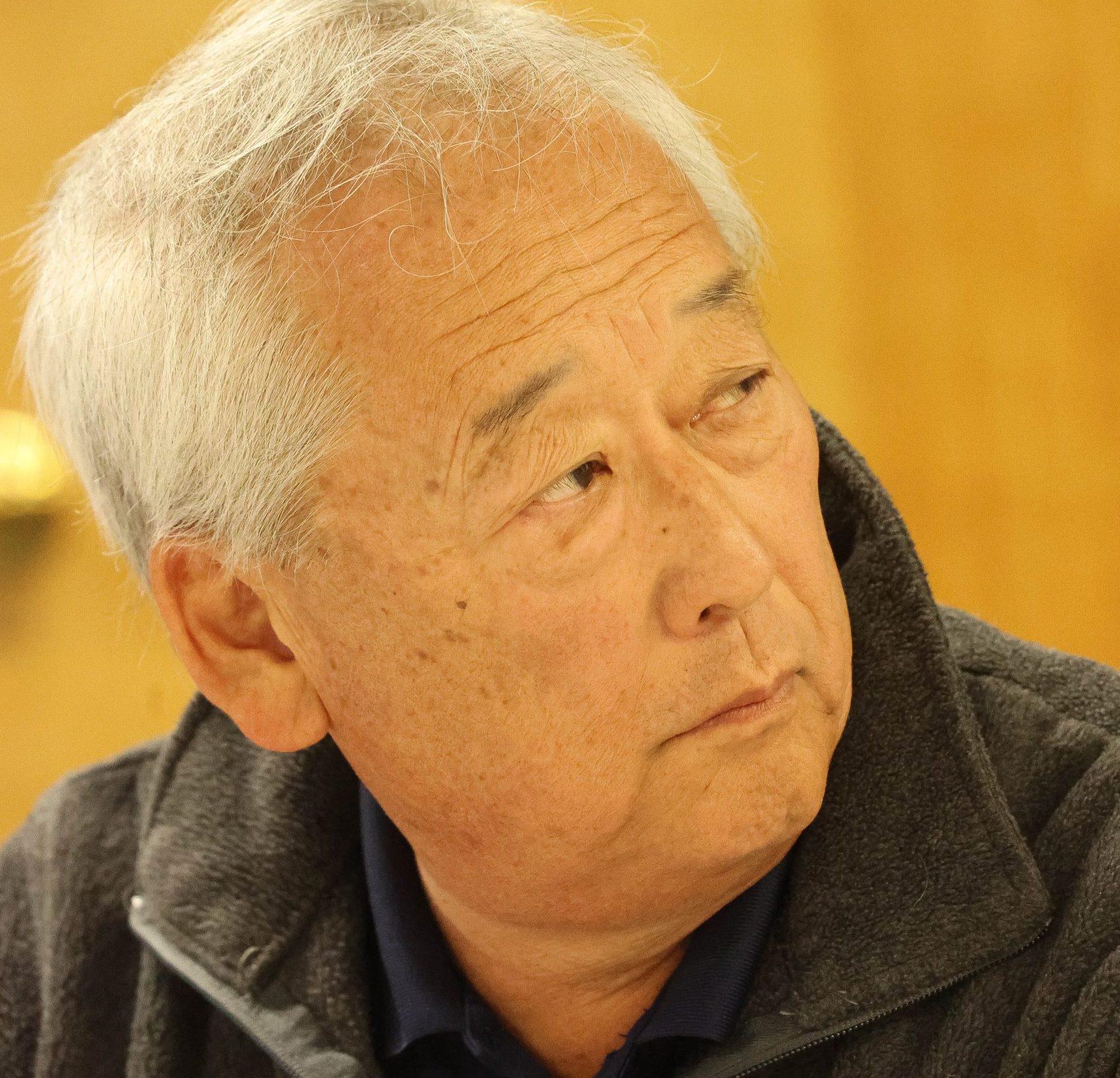
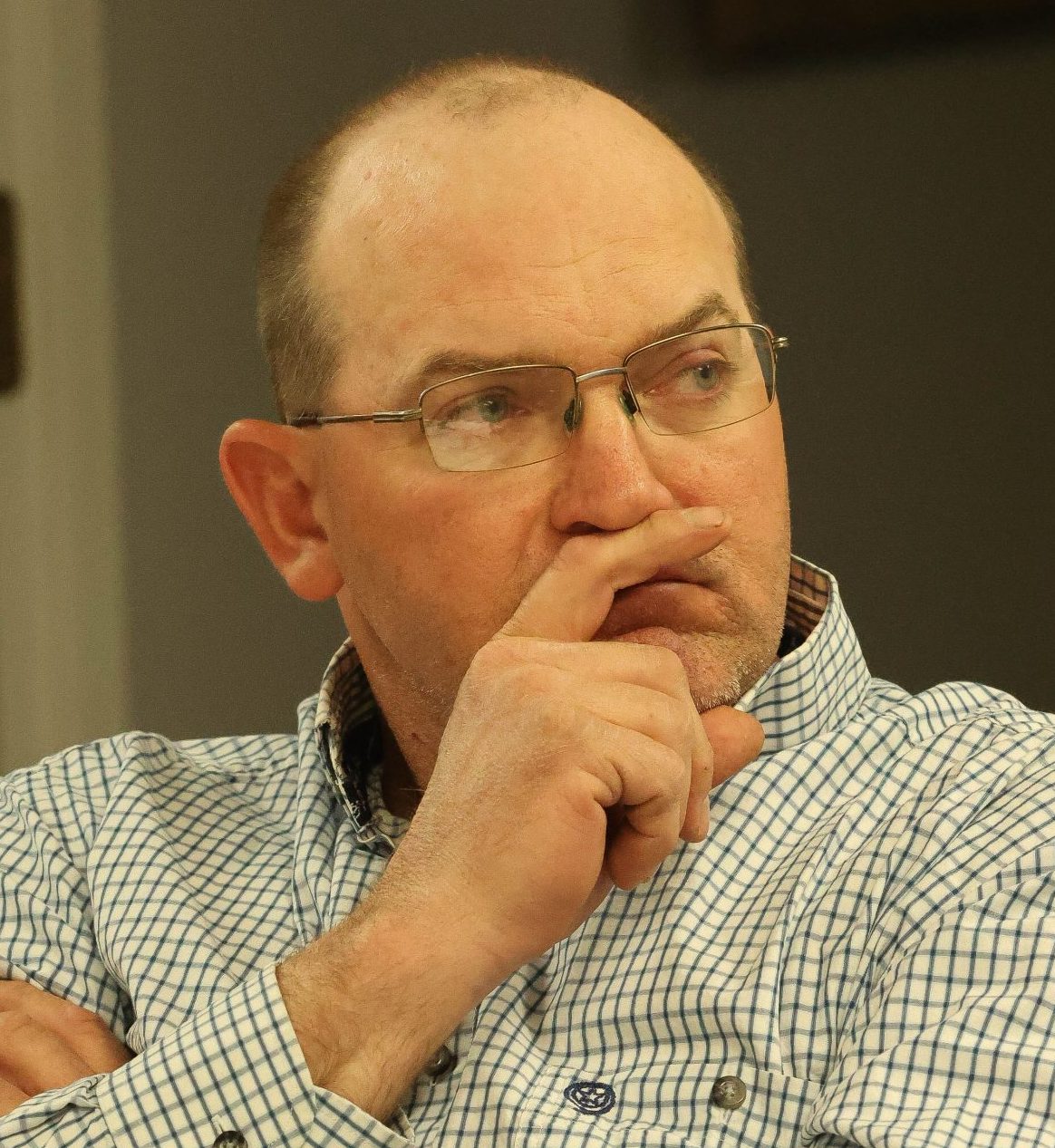
No director of the Malheur County Development Corp. responded to recent questions about retaining Greg Smith. They are (clockwise)Kay Riley, formerly of Snake River Produce in Nyssa, Lynn Findley, state senator from Vale, Jason Pearson, an executive with Eagle Eye Produce in Nyssa, Grant Kitamura, CEO of Baker & Murkami Produce Co. of Ontario and president of the Malheur County Development Corp., and Corey Maag, owner of Jamieson Produce of Vale. (The Enterprise/PAT CALDWELL and ANGIE SILLONIS)
DiFonzo didn’t respond to written questions Friday, July 1, and neither did the development company board members. They include Grant Kitamura of Baker & Murakami Produce, Corey Maag of Jamieson Produce, Jason Pearson of Eagle Eye Produce, Kay Riley, formerly of Snake River Produce and Lynn Findley, state senator from Vale.D
Two members of the Malheur County Court – County Judge Dan Joyce and Commissioner Ron Jacobs – also didn’t respond to questions about the Smith proposal.
The third member, Commissioner Don Hodge, may have triggered the series of events when he told Smith recently that he would not support renewing his contract. Hodge said in an interview that Smith’s decision to bar the Enterprise from a news conference tipped him against keeping Smith on duty.
But Hodge said he understood the development company’s interest in maintaining Smith as the project manager.
Hodge said the development company officials feel that without Smith, cooperation would suffer between Americold, the global conglomerate contracted to manage the facility, and Union Pacific Railroad, which would handle rail traffic out of the Nyssa center.
“If he goes away, we don’t even know who the contacts are,” said Hodge.
Hodge said he was uncomfortable with the Smith’s price tag.
“If we give him $15,000, that is what we have been giving him to do two jobs. I support helping fund it but the total of $15,000, I don’t know,” said Hodge.
Smith and his team have often described the Treasure Valley Reload Center in optimistic tones even as trouble developed. Under the recently expired contract, Smith was paid to “prepare and adhere to budgets” and “prepare and adhere to timelines.”
Construction started last December and crews ran into trouble almost immediately, faced with a wetland that proved far bigger than expected. That required tons of additional rock, at a cost of millions more than in the budget.
The project by then already was in budget trouble because initial construction bids came in high. Project leaders suspended plans for one rail spur at the reload center to save about $2.7 million but then had to dig deeper into their budget to cover other rapidly escalating cost overruns.
Through the early part of the year, Smith and the lead engineer, Brad Baird of Anderson Perry & Associates, provided rosy reports on construction. They didn’t disclose the extent of troubles with the wetland until April.
Smith told the board that the Legislature had given the project another $3 million in March. That wasn’t true and Smith, who as a state representative serves on the Legislature’s budget committee, has since ignored questions about the misstatement.
Smith then told directors that he was working to arrange more state financing for the project, citing a specific state loan program. But the Enterprise established that the reload center didn’t qualify, and Smith, who claims government financing expertise, wouldn’t answer questions about that error.
He also wrongly told the board that parts of the reload center could be sold off in the future to cover costs. Americold holds a contract to buy the reload center for $1 if it runs the Nyssa operation for 20 years.
And while he is paid to oversee contracts, Smith for months approved payments to Anderson Perry & Associates that exceeded the contract limit by more than $500,000. The contract was amended following an investigative report by the Enterprise about the discrepancy.
In May, he erupted in anger during one board meeting under questioning from the Enterprise, prompting a county commissioner to step in. He subsequently blocked the newspaper from a news conference regarding the project.
And Smith has not routinely provided detailed budgets to his board or county officials. He was recently ordered by District Attorney Dave Goldthorpe to release a budget document but, as of Friday, he had not done so.
The Malheur County Court has been under increasing community pressure to sever its ties to Smith. Instead, the commissioners accepted Smith’s resignation at their meeting on June 28 while praising his work.
Joyce and Hodge said they concurred with Jacobs’ assessment that Smith had brought in new business and new money to the county in his tenure. Jacobs found nothing to criticize in Smith’s performance.
Instead, he said “negative publicity” over Smith and the project has “divided the county.” He urged a “more positive” relationship by county leaders with the press. “We have nothing to hide.”
News tip? Contact reporter Pat Caldwell by email at [email protected]
PREVIOUS COVERAGE:
County judge says $26 million should be enough for Nyssa rail center
Malheur County blocks Enterprise from news conference on rail center
County covers costs for Smith aide to join conference at McCall resort
Engineering costs for Nyssa project jump with belated contract change
Nyssa rail center stopped in its tracks – no money for building
Despite officials’ claims, lottery bonds aren’t sole money source for Nyssa reload project
Project leaders report to state that Nyssa rail center will be done by August
State board won’t consider emergency $3 million for Nyssa rail center
Nyssa project officials hitting up private company for $2.5 million to cover cost overruns
Smith erupts during question-and-answer session at rail center meeting
EXCELLENCE IN JOURNALISM – Available for $7.50 a month. Subscribe to the digital service of the Enterprise and get the very best in local journalism. We report with care, attention to accuracy, and an unwavering devotion to fairness.

